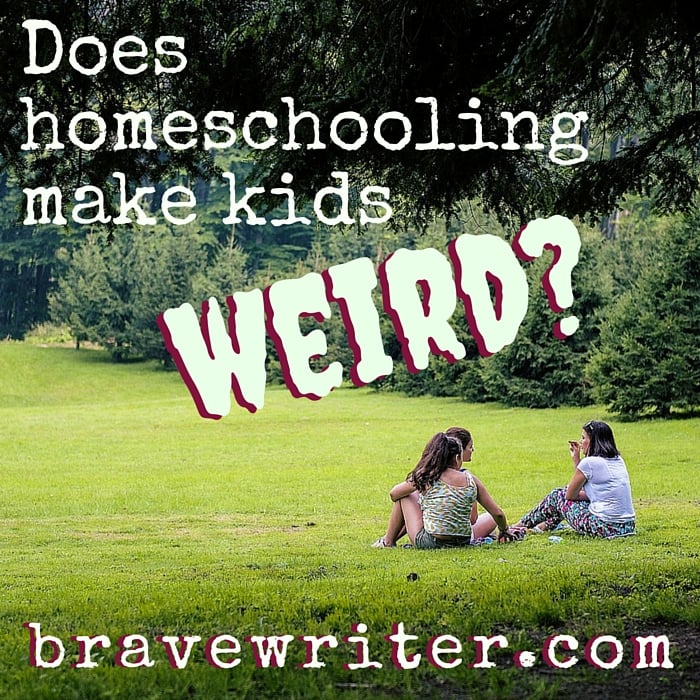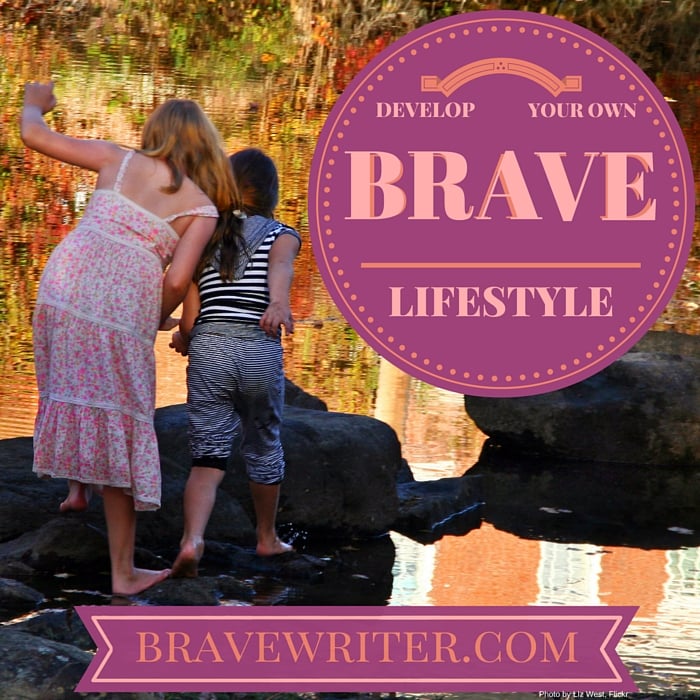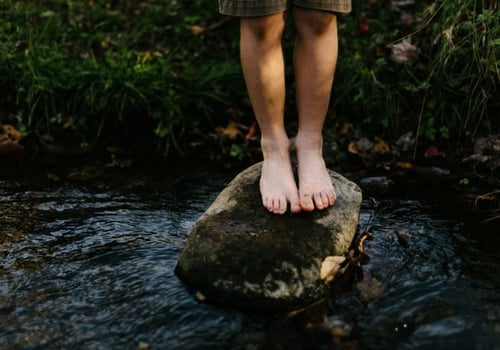
First, consider the source of the criticism.
I clicked around about twenty homeschool blogs and was moved, inspired, touched. (I even discovered that this blog had been nominated for Best Homeschool Business Blog last year and I hadn’t even known it! I’ve added a number of your blogs to my Brave Writer Mom blogroll and would love to add yours if you send me a link.)
I should have headed straight to bed then.
Unfortunately, I stumbled on a conversation that curled my droopy hair.
On a visit to a blog I frequent where we discuss theology, our beloved homeschooling took a beating I had not expected. Men (yes, a largely male bunch I noticed) expounded the value of supporting the public school system and the deterimental effects of homeschooling, particularly if one is a Christian.
Homeschooling was said to be a scourge, undermining freedom, democracy and plurality! (Good thing I’ve still got my militia vest and camo tucked under my mattress.)
The general thrust of this particular blog was that homeschoolers were abandoning the great institution called “public school” for their own selfish reasons and were therefore not fulfilling their duty to be both salt and light. Give me a break.
One “gentleman” (I use that term cynically) explained that the homeschoolers he knew were weird. Weird. That was his well-thought out reason for why we shouldn’t be homeschooling our kids.
I’m still shaking after that one. More chocolate.
Let me use that little prompt to offer you my thoughts on the “weirdness” of homeschoolers.
Let me begin by saying that I do not think public or private schools are Satanic. My two oldest have both attended public schools part time in high school. On the other hand, I will not stand by and allow non-homeschoolers to broadbrush kids I’ve come to respect, love and adore through my years of interacting with them both in person and online.
If this is what is meant by weirdness through homeschooling, give our kids the diploma right now!
- Kids who look adults in the eye when they speak.
- Kids who read classic literature during the summer because they can’t wait to read the books, not because it is a “summer reading assignment.”
- Kids who think taking an online writing class is fun.
- Kids who play classical music on the piano and rock n’ roll riffs on the electric guitar in the same day.
- Kids who think that they are in charge of their educations, not that someone else is supposed to be.
- Kids who don’t know what it is to bully someone, to be hateful and mean to “fit in.”
- Kids who haven’t been told they are stupid, behind, lazy or rebellious just because they learn at different rates than the class.
- Kids who don’t know they have big noses, or are too short, or that they live in a small house, or that sharing a bedroom is bad, or that they should hate their little sisters.
- Kids who know how to entertain themselves for hours without any adult supervision.
- Kids who don’t go to college unless they have a good reason.
- Kids who wear modest clothing or funky outfits because they don’t feel pressure to conform.
- Kids who think hanging out with a parent is a treat, not a punishment.
- Kids who receive rave reviews from relatives, bosses, and teachers for being engaged learners.
Kids who include other kids of any age bracket in their games and parties.- Kids who speak their opinions with confidence that someone will take them seriously.
- Kids who have opinions!
- Kids who have opinions based on their own research and reading.
- Kids, in short, who know themselves better than the demands of a peer group, who believe that education is valuable, who imagine that they can choose their futures.
Revise that. Aforementioned blogging male was right. Our homeschooled kids aren’t just weird. They’re freaks!
Whether or not we’re raising weird kids shouldn’t be the issue anyway. Are our kids thriving and growing into who they ought to become? All kids (and adults) want to know who they are, that they’ll be loved for who they are and that what they do matters… to someone. Whether in or out of school, that’s what counts.
Our greatest education concern should be making sure our kids are thriving and growing into they ought to become.
Homeschooled kids know that what they do matters to someone who matters to them every day – their families. Those weirdoes. 🙂
Julie
P.S. For the record: I believe the biggest tragedy in public education is the fact that funding is tied to property taxes which means the poor get poorer schools and the rich get richer. As a citizen, that’s one battle I’d gladly take on: ensuring that the inner city kids get decent schooling.
Speaking of FUN online writing classes…
 In our popular Fan Fiction online class, students practice freewriting and drafting, planning plot, developing believable characters, revision strategies, peer feedback, and sharing their work with interested readers. By the end of this class, they will have a story that is ready to publish on a fan fiction website, should they desire that for their work!
In our popular Fan Fiction online class, students practice freewriting and drafting, planning plot, developing believable characters, revision strategies, peer feedback, and sharing their work with interested readers. By the end of this class, they will have a story that is ready to publish on a fan fiction website, should they desire that for their work!


















